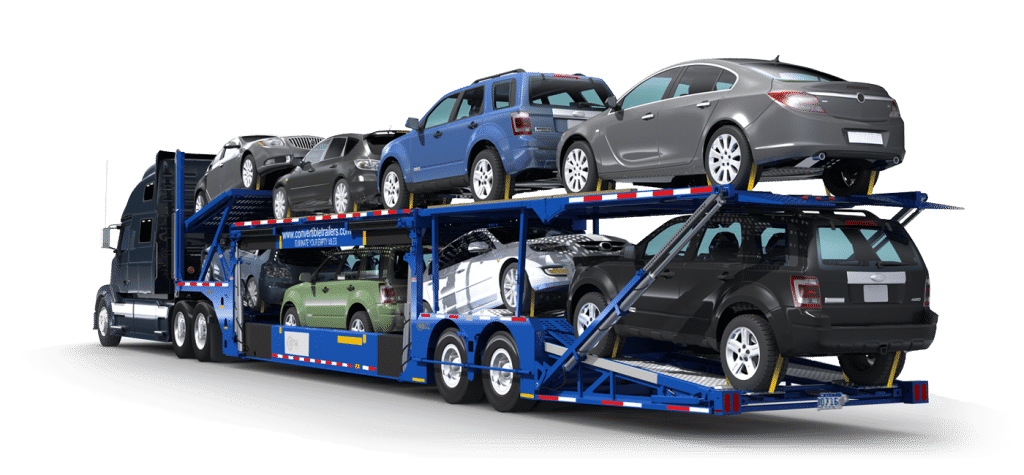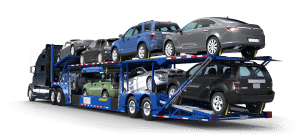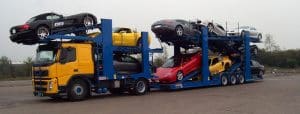Introduction To German Cars And Hawaiian Weather
When it comes to the perfect blend of engineering prowess and driving experience, German cars have long held a prestigious position in the automotive world. Renowned for their precision, durability, and innovative technology, these vehicles often set benchmarks that other car manufacturers strive to meet. However, selecting the ideal German car involves more than just an appreciation for fine engineering; it also calls for an understanding of how these vehicles will fare in specific climates—such as the unique weather conditions found in Hawaii.
Hawaii’s climate is characterized by its warm temperatures, high humidity, and occasional heavy rainfall. The islands enjoy a tropical climate with relatively stable temperatures year-round, ranging from 70°F to 85°F (21°C to 29°C). While this weather is idyllic for beachgoers and outdoor enthusiasts, it does pose certain challenges for automobiles. High humidity can lead to rust and corrosion if a vehicle isn’t adequately protected.
Frequent rain showers demand superior handling and braking systems to ensure safety on wet roads.
German automakers like Audi, BMW, Mercedes-Benz, Porsche, and Volkswagen have long been lauded not only for their performance capabilities but also for their advanced safety features and robust build quality—attributes that make them particularly suited for Hawaiian conditions. From all-wheel-drive systems designed to tackle slippery surfaces to interiors built with materials resistant to moisture-related wear-and-tear, German cars provide a harmonious balance of luxury and practicality.
Understanding how these attributes align with Hawaii’s tropical climate can help you make an informed decision when choosing your next vehicle from Germany’s top automotive brands.
Key Features To Consider For Hawaiian Conditions
When selecting a German car that is perfectly suited for Hawaiian weather, it’s essential to consider several key features that will ensure optimal performance and comfort in the unique island climate. The tropical conditions of Hawaii, characterized by high humidity, frequent rain showers, and abundant sunshine, necessitate vehicles that can handle these elements with ease. Firstly, the car’s air conditioning system should be robust and efficient.
Given Hawaii’s warm temperatures year-round, an advanced climate control system is vital for maintaining a comfortable interior environment. Look for cars with dual-zone or multi-zone climate control to cater to different passenger preferences. Next, consider the vehicle’s materials and build quality. German cars are renowned for their premium interiors; however, it’s important to choose models with UV-resistant materials that can withstand prolonged sun exposure without fading or cracking.
Leather seats should be treated to resist heat absorption and maintain comfort during hot days. Additionally, pay attention to the car’s corrosion resistance. The salty air in coastal areas can accelerate rusting on metal components. German manufacturers often use galvanized steel and other anti-corrosion treatments on their vehicles, but it’s wise to verify these features before purchase. Hawaii’s varied terrain requires adaptable driving capabilities as well.
Cars equipped with all-wheel drive (AWD) or four-wheel drive (4WD) offer enhanced traction on wet roads and during occasional off-road excursions through scenic spots like the Hana Highway or Mauna Kea trails. Lastly, fuel efficiency is a critical consideration given Hawaii’s high gasoline prices. Opt for models with efficient engines or hybrid systems to maximize mileage without compromising performance.
Top German Car Brands For Hawaii
When considering the ideal German cars for Hawaiian weather, several brands stand out due to their engineering excellence, adaptability, and premium features. German automakers have long been known for their precision engineering and attention to detail, making them well-suited to the unique climate of Hawaii. The island’s warm temperatures, occasional rain showers, and diverse terrain require vehicles that offer both reliability and performance.
BMW is a prime contender when discussing German cars fit for Hawaii. Known for its blend of luxury and sportiness, BMW vehicles come equipped with advanced climate control systems that keep the interior comfortable regardless of external conditions. Their xDrive all-wheel-drive system ensures stability on wet roads or during sudden downpours common in tropical climates. Mercedes-Benz also deserves mention for its luxurious offerings.
With a reputation for opulence and cutting-edge technology, Mercedes-Benz models feature sophisticated air conditioning systems designed to handle high humidity levels effectively. Their robust build quality ensures longevity despite the salty sea air that can be corrosive over time. Audi brings a different set of strengths with its Quattro all-wheel-drive technology providing excellent traction on wet or uneven surfaces. Audi’s commitment to integrating smart technology means drivers can expect superior navigation systems perfect for exploring Hawaii’s less-traveled paths.
Lastly, Porsche’s sporty yet practical designs make it an excellent choice for those who want performance without compromising comfort. Their vehicles are engineered to provide thrilling drives along scenic coastal routes while maintaining a plush interior environment suitable for hot climates.
Best Convertible Models For Sunny Days
When it comes to enjoying the sun-soaked splendor of Hawaiian weather, few experiences can match the sheer exhilaration of driving a convertible. German car manufacturers are renowned for their engineering prowess, and this extends to their convertible models, which seamlessly blend performance with luxury and style. These vehicles are designed not only to provide an open-air driving experience but also to handle varying weather conditions with ease.
In Hawaii, where the climate is predominantly warm and sunny with occasional rain showers, a well-engineered convertible can make every drive feel like a mini-vacation. German convertibles excel in this environment due to their advanced features such as adaptive suspension systems that ensure a smooth ride on diverse terrains—from coastal highways to winding mountain roads. Additionally, these cars often come equipped with high-quality materials that resist the corrosive effects of salty air and UV radiation.
For instance, many German convertibles feature retractable hardtops or soft tops that can be quickly deployed at the first sign of rain, ensuring that you stay dry without sacrificing the thrill of open-air driving when the sun reappears. The integration of cutting-edge infotainment systems allows drivers and passengers to enjoy music or navigation in a seamless manner, enhancing every journey. Moreover, German engineering emphasizes safety without compromising on aesthetics.
Reinforced roll bars and advanced braking systems provide peace of mind while maintaining an elegant appearance. With plush interiors that offer ergonomic seating and ample legroom, these convertibles ensure comfort even during extended drives along Hawaii’s scenic routes.
Efficient Cooling Systems For Tropical Heat
When considering German cars for the Hawaiian climate, one of the most important factors to examine is their cooling systems. The tropical heat and humidity characteristic of Hawaii demand efficient and reliable cooling mechanisms to maintain optimal vehicle performance and comfort. German automakers, renowned for their engineering excellence, have developed advanced cooling technologies that ensure their vehicles can handle such demanding environments.
Modern German vehicles are equipped with sophisticated multi-stage cooling systems designed to regulate engine temperature effectively even under extreme conditions. These systems typically include high-capacity radiators, electric fans with variable speeds, and advanced coolant formulations that can withstand higher temperatures without degrading. The integration of these components ensures that the engine operates within its ideal temperature range, preventing overheating and ensuring longevity.
Additionally, many German cars feature turbocharged engines which generate more heat than naturally aspirated engines. To manage this extra heat, manufacturers have incorporated intercoolers that cool the air before it enters the engine, optimizing performance while maintaining thermal balance. This is particularly beneficial in a warm climate like Hawaii’s where ambient temperatures are consistently high.
The air conditioning systems in these vehicles are equally adept at maintaining cabin comfort despite external heat and humidity. Advanced climate control technologies allow for precise temperature settings and efficient dehumidification, ensuring passengers remain comfortable regardless of external weather conditions.
In summary, the superior engineering behind German cars’ cooling systems makes them well-suited for Hawaiian weather. Their ability to maintain both engine efficiency and passenger comfort under tropical conditions ensures a pleasant driving experience year-round.
Maintenance Tips For German Cars In Humid Climates
When it comes to maintaining German cars in humid climates like Hawaii, a proactive approach is essential to ensure longevity and peak performance. The humid conditions can pose unique challenges, but with proper care, your car can remain in pristine condition.
Firstly, the high humidity levels can accelerate rust formation on metal components. Regularly washing your car is crucial to remove salt deposits from ocean spray and environmental pollutants that contribute to corrosion. Pay special attention to the undercarriage and wheel wells where rust tends to develop more rapidly.
Secondly, consider investing in a high-quality wax or ceramic coating for an extra layer of protection against the elements. This not only enhances the car’s aesthetic appeal but also creates a barrier against moisture intrusion.
The tropical climate can also affect electrical systems due to increased moisture levels. Ensure that all electrical connections are sealed properly and check for any signs of corrosion or wear periodically. Using dielectric grease on connectors can provide an additional safeguard against moisture ingress.
Another aspect often overlooked is the interior of the vehicle. Humidity can lead to mold and mildew growth inside the car, particularly if it’s parked in shaded areas for extended periods. Employing dehumidifiers or silica gel packs within the cabin can help keep moisture at bay.
Lastly, tire maintenance becomes even more critical in humid climates where road conditions may be affected by frequent rain showers. Regularly check tire pressure and tread depth to ensure optimal performance and safety.
By taking these measures tailored for humid environments, you’ll be able to preserve your German car’s elegance and functionality while enjoying Hawaii’s unique climate.





